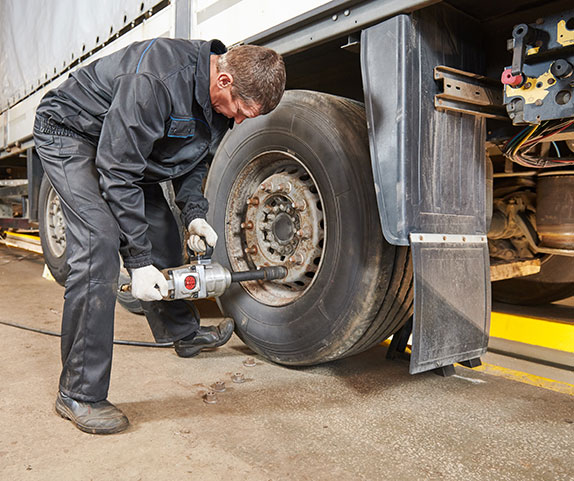Morris Tires: Your Destination for GMC Tires Service Quality
Morris Tires: Your Destination for GMC Tires Service Quality
Blog Article
Tire Service: The Impact of Climate Condition
When it comes to making certain optimum performance and safety when traveling, understanding the influence of weather condition problems on tire service is crucial. From scorching heat to icy roads, each climate element can dramatically affect tire capability and general driving experience. By diving right into the effects of varying climate conditions on tires, vehicle drivers can obtain beneficial insights that may boost their automobile's performance and long life. In this discussion, we will discover the detailed partnership in between climate problems and tire solution, dropping light on the significance of weather-specific tire maintenance practices and factors to consider.
Warmth and Tire Efficiency
When exposed to high temperature levels, tires experience adjustments in efficiency that can dramatically influence automobile safety and security and handling. The heat produced from extended driving or heat problems triggers the tire rubber to soften, causing reduced walk life and raised wear. As the rubber comes to be softer, the tire's hold when driving lessens, influencing braking ranges and general traction. In extreme instances, too much warm can even trigger tire blowouts, posing a serious security danger to the car and its passengers.

Winter Impacts
Cold weather condition problems can have a considerable effect on tire efficiency and safety. As temperatures drop, tire rubber can set, bring about lowered traction on icy or snow-covered roadways. In winter, tires might also shed air stress a lot more swiftly, which can affect managing and gas effectiveness. Furthermore, cool temperatures can cause tire sidewalls to stiffen, raising the danger of damages from craters or other road threats.
To mitigate the impacts of winter on tires, it is crucial to consistently inspect tire pressure and inflate them to the maker's advised degrees. Utilizing winter or all-season tires designed for winter conditions can additionally improve traction and grasp on icy or snowy roadways. Proper tire upkeep, including routine examinations for wear and damages, ends up being much more critical during colder months to guarantee optimum efficiency and safety and security.
Rainy Conditions Influence
During stormy conditions, tire efficiency and security can be significantly influenced by the wet road surfaces and reduced presence. The step pattern of tires plays an essential duty in keeping traction on damp roads. Tires with damaged footsteps are a lot more prone to hydroplaning, where a layer of water accumulates in between the tire and the roadway surface area, causing loss of traction. To combat this, vehicle drivers need to consistently inspect their tires for ample walk depth and consider purchasing tires particularly designed for damp problems.
Moreover, wet climate can also lower exposure, making it challenging for motorists to see the road ahead plainly (GMC Tire Service). In such problems, it is vital to readjust driving rates as necessary and keep a secure following distance to enable for unexpected quits. Appropriately filled with air tires can additionally assist in maintaining control on damp roadways by offering much better handling and grasp
Snow and Tire Safety And Security
Snow-covered roadways present unique difficulties for chauffeurs, stressing the significance of appropriate tire choice and maintenance. When driving in snowy problems, having the appropriate tires can make a significant difference in security and efficiency. Wintertime tires are created with unique rubber substances and tread patterns to supply better traction on snow and ice contrasted to all-season tires. The deeper treads and sipes of winter season tires aid grip the road better, minimizing the risk of sliding and slipping.

It is crucial to follow producer instructions when installing and using tire chains to protect against damage to the tires and automobile. By selecting the best tires, preserving appropriate rising cost of living, and taking into consideration additional traction help like tire chains, motorists can improve their security when navigating snow-covered roads.
Weather-Related Tire Maintenance
When confronted with various weather, appropriate tire maintenance comes to be an important look these up aspect of lorry security and efficiency. Weather-related tire upkeep includes a variety of techniques targeted at making sure ideal tire feature and long life in different weather condition situations. One essential aspect of weather-related tire upkeep is tire stress policy. Varying temperature levels can trigger tire stress to differ, influencing traction and gas performance. Consistently readjusting and checking tire stress according to maker recommendations is necessary for risk-free driving in altering climate condition. Furthermore, tire step depth plays a considerable role in handling various climate aspects. Tires with sufficient step deepness provide far better hold on damp or icy roads, reducing the threat of hydroplaning or Discover More Here skidding. Examining tire tread routinely and replacing tires when walk wear gets to a certain deepness is vital for maintaining grip and stability in adverse weather condition. By prioritizing weather-related tire maintenance, motorists can boost security, improve car efficiency, and lengthen the lifespan of their tires.
Conclusion
To conclude, weather conditions have a considerable effect on tire efficiency and security. From heat impacting tire stress and use to cold weather minimizing traction, it is important to take into consideration the weather when keeping and using tires. Rainy conditions can reduce hold and bring about hydroplaning, while snow can increase the risk of mishaps if tires are not effectively equipped. Weather-related tire upkeep is essential in making certain optimal performance and security when traveling.
In this conversation, we will certainly check out the intricate connection in between weather condition problems and visit tire service, shedding light on the value of weather-specific tire maintenance techniques and factors to consider.

Report this page